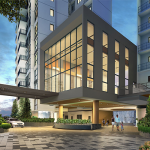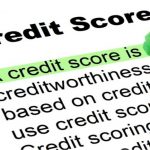The $150 million sustainability-linked loan obtained from DBS is also Keppel Land’s first referencing SORA

Keppel Land said that it has secured its maiden sustainability-linked loan from DBS Bank. The five-year SGD 150 million facility references the Singapore Overnight Rate Average (SORA), the first such loan for Keppel Land.
The facility’s interest rate comprises two components:
- a compounded daily SORA rate calculated in arrears, and
- an applicable margin. The loan also incorporates interest rate reductions linked to pre-determined Environmental, Social and Governance (ESG) targets, allowing Keppel Land to enjoy savings in borrowing costs as it achieves these ESG targets. These include Keppel Land achieving a 5-Star Rating in the 2021 Global Real Estate Sustainability Benchmark (GRESB) Real Estate Assessment. (Established in 2009, GRESB is recognised as the leading ESG benchmark for real estate and infrastructure investments across the world.)
The proceeds of the sustainability-linked loan will be used for general corporate purposes, including but not limited to refinancing of maturing debt, capital expenditure for new development projects, and/or potential land and property acquisitions.
Ms Tan Boon Ping, CFO of Keppel Land, said, “In line with Keppel’s Vision 2030, Keppel Land places sustainability at the core of our strategy. This goes beyond the development and management of low-carbon, resource-efficient buildings, but also extends to the strengthening of our green funding sources. We are pleased to secure our first sustainability-linked loan from DBS Bank. This will support us in our continuous efforts to drive ESG improvements, as we deliver Keppel Land’s vision to be a leader in redefining urban spaces for a sustainable future.”
Mr Lim Wee Seng, Head of Energy, Chemicals and Infrastructure, DBS Bank, said, “With conversations around a low-carbon economy fast gaining traction, we have observed a keen interest within the real estate sector for more sustainable financing instruments. We are pleased to walk alongside Keppel Land as it forges ahead with its sustainability journey by issuing its maiden sustainability-linked loan. As a purpose-driven bank, we are committed to supporting progressive companies such as Keppel Land advance their ESG agendas for a more sustainable future. We are also delighted to support Keppel Land in closing their first SORA-based loan. By adopting SORA for this landmark facility, Keppel Land will be well-positioned as Singapore shifts toward the mainstream adoption of SORA as the new interest rate benchmark in the cash and derivatives market.”
This sustainability-linked loan with DBS follows Keppel Land’s first green loan facility of RMB 850 million, secured in 2019, for the development of Seasons City (Phase 1) in the Sino-Singapore Tianjin Eco-City, China. As a responsible corporate citizen, Keppel Land strives to operate in a profitable, as well as socially and environmentally responsible manner that creates long-term value for its stakeholders. It takes a proactive and holistic approach to sustainability and is committed to upholding high standards of corporate governance and risk management in its daily operations.
High on Keppel Land’s priority list are goals including advancing environmental sustainability to build sustainable, low-carbon urban developments, fostering a strong safety culture to achieve a zero-harm workplace, as well as nurturing an agile, skilled and engaged workforce to build business resilience and ensure sustainable growth in the long run.
Since 2011, Keppel Land has been a signatory of the United Nations (UN) Global Compact, the world’s largest corporate sustainability initiative promoting sustainable business practices, supporting its 10 principles on human rights, labour, environment and anti-corruption. Keppel Land is also committed to supporting the UN Sustainable Development Goals, of which the company has adopted six which are most aligned with its business and material issues.
In addition, Keppel Land has set a long-term carbon emission intensity reduction target of 40% below 2010’s levels to be achieved by 2030. Meeting the 40% reduction target will result in a cumulative reduction of almost 140,000 tonnes of carbon emissions, which will yield potential savings of over SGD 75 million, from 2010 to 2030.
To increase its support for businesses seeking to achieve their sustainability ambitions, DBS has committed to finance SGD 50 billion in renewable, clean-energy and green projects by 2024, more than twice its earlier target of SGD 20 billion. In 2020, DBS closed SGD 9.6 billion in sustainable financing transactions, up 81% from the previous year. DBS is also the first Singapore bank to offer transition financing and launched the world’s first Sustainable and Transition Finance Framework and taxonomy to help clients advance on their sustainability journeys.
With the impending discontinuation of interest rate benchmarks such as the London Inter-bank Offered Rate (LIBOR) and Swap Offer Rate (SOR), DBS has been partnering its clients to achieve a smooth and seamless transition to alternative Risk-Free Benchmark Rates (RFRs). DBS has closed more than SGD 3 billion in loans referencing the RFRs in 2020 and along the way, broke new grounds such as the first SORA club loan coupled with a cross currency swap and Singapore’s first business property mortgage loan referencing SORA.
The transaction of the sustainability-linked loan is not expected to have any material impact on the earnings per share and net tangible asset per share of Keppel Corporation Limited for the current financial year.
Mr Paul Ho, chief officer at iCompareLoan, said: “sustainability-linked loan is the direction real estate is moving towards. While it is true that all companies should try for green financing, it is harder to come by, especially for small and medium companies.”
“This is where they have to get advise from experienced loan specialists to see how they too can get access to such funds to grow their business.”






